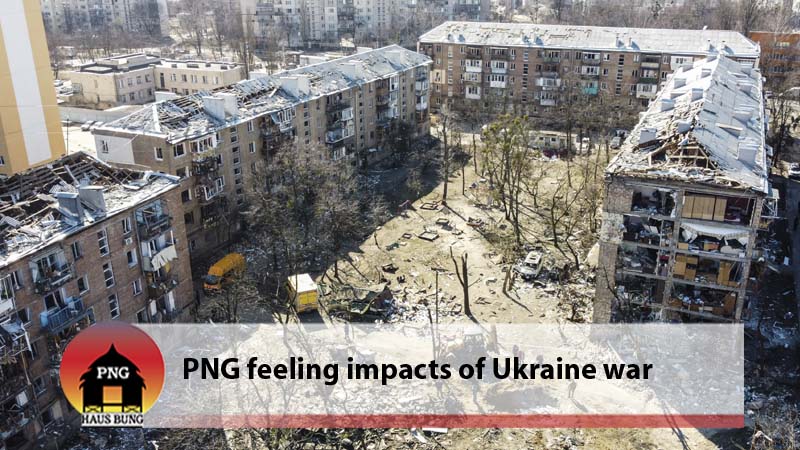The effects from the pandemic and the recent War in Ukraine will have a dual effect on the small countries like Papua New Guinea (PNG) that both produce raw materials and import goods as well.
That’s according to the Director of the PNG Institute of National Affairs (INA) Paul Barker when commenting on the recent price increase in the country and the impacts of the war and the pandemic on the world market.
Barker explained that the impact on the world market comes from the two countries in conflict because both are also major producers and exporters of commodities like minerals, oil and gas, and agricultural commodities.
“It has resulted in major increases in commodity prices ranging from oil to gas through to nickel. The price of grain has gone up, so this is having an inflationary price effect on other agricultural crops as well.”
Barker said hopeful the conflict is resolved sometime soon because the longer it goes on, there will be longer term impact on the world markets and subsequently affecting smaller states like PNG.
However, on the benefit side Mr. Barker said PNG being a producer and exporter of some commodities, will stand to benefit particularly on the spot price and maybe longer-term sales price, where PNG can get a better return on producing and exporting.
But, on the other hand PNG is an importer of energy as well said Mr. Barker and it’s particularly fuel for vehicles, machinery, transport and shipping. PNG also is an importer of a range of grains and other food commodities and this will have an effect on living standards and the cost of doing business.
“This will have more impact on low income earners who spend more of their income on food and basic components for survival,” said Barker.
“That’s the real challenge because many households are struggling already with the existing cost of living without seeing the cost of living rising.”
Nevertheless, there are some measures the state could try to apply to mitigate this rise of cost brought about by the events in the world.
“The standard measure to try and restrain inflation via the central bank is to increase interest rate, but that’s not necessarily what the government would really want to do, especially because particularly energy is not an underlying inflation cause, it often goes up or down. ”
“When you are using interest rates, it’s to try and restrain underlying longer term inflation, so dealing with shorter term inflation is a much harder thing,” explained Mr. Barker.
Another measure that Barker said the government could take is to improve access for local produce to reach the main domestic markets, to supply and meet the demand in tough economic times.
“One could take action to improve competition, improve the markets by making it easier for domestic produce to reach the markets. That certainly is always valuable to try and help the sustainable PNG fresh produce, not just to be able to reach Lae but to actually be able to reach Port Moresby. ”
Mr. Barker further added that the state could subsidize the cost of shipping to encourage the supply of domestic produce around the country.
Barker said at times like these, the government should not only look at short terms measures but to look at the medium and long term measures as well and to use of the country’s own natural resources to try counter the economic impacts brought about by external factors.

